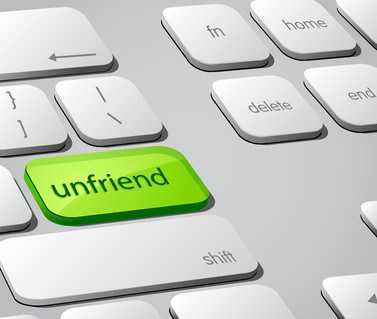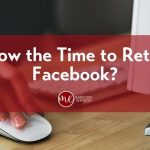Popular People Do Not Get “Unfriended” Even if Abusive
May 9, 2016

Your Facebook timeline is bound to have posts and comments from people saying negative, even potentially abusive things. Indeed, it seems that conflict is part of the everyday nature of social media networks like Facebook.
So why don’t you “unfriend” or disconnect from those negative people? After all, their posts and comments alter your psychological state, perhaps making you angry or emotional in some way. That’s not good for your health…! Yet, it turns out that we do not “unfriend” many people who are negative online.
Researchers from Nottingham Trent University analysed more than 5,000 online relationships and discovered that we are prepared to stick with negative and abusive material in our Facebook timelines as long as that content is produced by a popular person. It turns out that popularity overpowers negativity. We accept negative people, and those who cause conflict, as long as they are popular.
According to the researchers, “The social repercussions of unfriending someone reach far beyond the boundaries of the online network. People don’t want to risk causing offline tension with their friends, family members or colleagues by disconnecting them from their online lives. Remaining online friends with troublemakers appears to be a social necessity for some.”
One issue uncovered by the research was that the troublemakers were rarely contacted. Even though the negativity appears in an individual’s timeline, they had little contact with the perpetrator. It seems that we just want to “keep an eye on” the troublemakers, see what they are doing, but not interact with them. This may be some kind of protective mechanism, of course. Alternatively, it may be that troublemakers still have some kind of power.
Other studies have looked at what might seem to be the reverse of this situation – why we remain connected with and constantly communicate with certain individuals. Once again, the results suggest popularity is central to this issue. We tend to stay in touch with popular people who are nice and positive, but we also remain connected with popular people who are negative and even abusive.
What this suggests is that popularity is more important than other factors. From a psychological perspective, there are two kinds of popularity – “sociometric popularity” and “perceived popularity”. Sociometric popularity is where people become popular through prosocial behaviour – they are always helpful towards others and are not egocentric. Perceived popularity is where individuals have very high levels of social visibility, but they are rarely liked as people.
So, online you can become popular in two ways. You can have very high visibility, lots of connections and be perceived as popular. Or you can help people and be liked. The choice is yours. However, whichever route you choose, you will remain “friends” with people on social networks.
Digital & Social Articles on Business 2 Community
(27)











